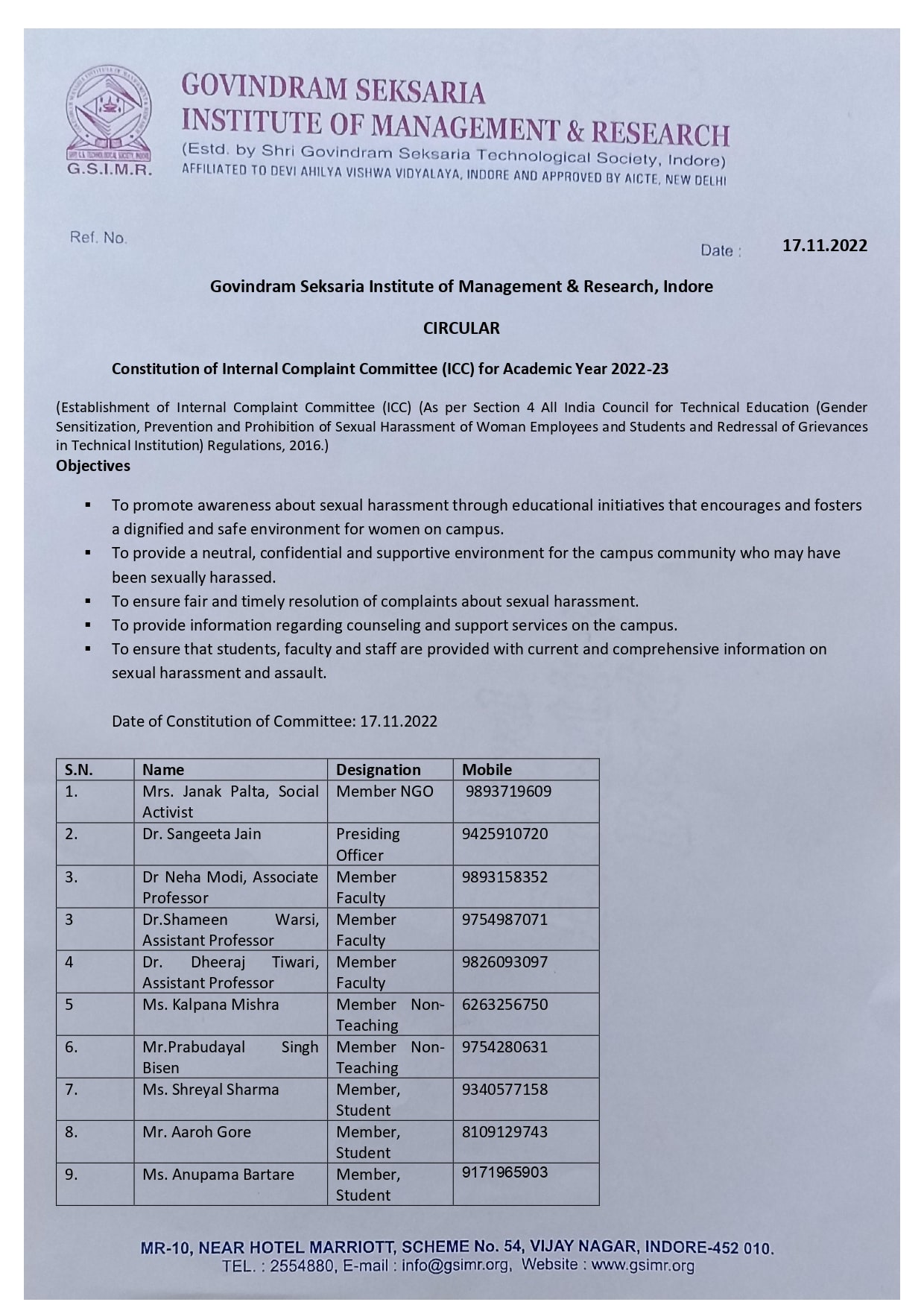Supply Chain Management has become an integral part of the business world. With globalisation’s rise, Companies increasingly rely on complex networks of suppliers and partners to produce and distribute their products. This has led to a growing demand for professionals who can effectively manage these networks and ensure that goods are delivered on time and at the lowest cost possible.
The field of supply chain management is constantly evolving, and MBA graduates from GSIMR are well-positioned to take advantage of the many opportunities in this dynamic industry.
Let’s explore some of the key Trends shaping the future of supply chain management and the career opportunities available to MBA graduates.
Trend 1: Increased Use of Technology
One of the most significant trends in supply chain management is the increased use of technology. Companies invest heavily in software systems that track inventory, monitor production, and analyse real-time data. This has led to increased efficiency and better decision-making, as managers can identify potential problems and make adjustments on the fly quickly.
MBA graduates from GSIMR interested in pursuing a career in supply chain management should be familiar with the latest technologies and tools used in the industry. They should also have a solid understanding of data analysis and be able to use this knowledge to make informed decisions.
Trend 2: Greater Emphasis on Sustainability
Another significant trend in supply chain management is the increasing emphasis on sustainability. Companies are under pressure to reduce their environmental footprint and ensure that their products are produced in an ethical and socially responsible manner. This has led to a growing demand for professionals who can help companies develop sustainable supply chain strategies.
The GSIMR MBA programme graduates interested in working in this field should know sustainability standards and best practices. They should also be able to collaborate with partners and suppliers to implement sustainable practices all along the supply chain.
Trend 3: Greater Focus on Risk Management
With the rise of global supply chains, companies are increasingly exposed to various risks, including geopolitical instability, natural disasters, and supply chain disruptions. This has led to a growing emphasis on risk management in the supply chain.
The GSIMR MBA programme graduates who want to work in risk management should know the most recent methods and resources.
They should also be able to collaborate with partners and suppliers to establish risk mitigation strategies. They should also have a strong understanding of supply chain operations.
Trend 4: Increased Collaboration and Partnership
Finally, there is a growing trend towards increased collaboration and partnership in the supply chain. Companies realise they can achieve greater efficiency and better outcomes by working with their partners and suppliers. This has increased the demand for professionals to build and manage effective partnerships and collaborations.
GSIMR’s MBA graduates working in this field will have strong interpersonal and communication skills. They must be knowledgeable of current partnership models and best practices.
Opportunities for MBA Graduates from GSIMR
MBA graduates from GSIMR interested in pursuing a career in supply chain management have a range of opportunities available to them. They can work in various industries, including Manufacturing, Retail, Logistics, and Consulting.
Some of the available Roles include:
Supply Chain Manager: This role oversees the entire supply chain, from sourcing raw materials to delivering finished products to customers.
Supply Chain Managers ensure that the supply chain operates efficiently, effectively, and with high quality. They work closely with suppliers, manufacturers, distributors, and other stakeholders to optimise the supply chain and ensure that products are delivered on time and within budget.
Procurement Manager: Procurement Managers are also in high demand in supply chain management. They are responsible for sourcing and purchasing goods and services from suppliers. Procurement Managers work closely with suppliers to negotiate contracts, ensure quality, and manage costs.
Operations Manager: Responsible for managing the day-to-day operations of the supply chain, including production scheduling, inventory management, and quality control. They oversee the activities of employees, monitor productivity levels, identify areas for improvement and work to implement strategies to increase efficiency and reduce costs.
Inventory Manager: Responsible for overseeing the inventory levels of a company, ensuring that products are available when customers need them while also minimising inventory costs. They forecast demand, set inventory targets, order products, and manage inventory levels. They also work to optimise inventory turnover, reduce stockouts, and minimise excess inventory.
Logistic Manager: Logistic manager oversees the entire supply chain, from sourcing raw materials to delivering finished products to customers.
They are responsible for developing and implementing logistics strategies, coordinating logistics activities, and managing logistics personnel.
Distribution Manager: They are responsible for managing the distribution of goods throughout the supply chain, ensuring that products are delivered to the right place, at the right time, and in the right quantity.
They also develop and implement distribution strategies, manage inventory levels, coordinate transportation activities, and oversee warehouse operations.
Transportation Manager: As a Transportation manager, you can manage the transportation of goods throughout the supply chain, ensuring that products are moved safely, efficiently, and cost-effectively. They develop and implement transportation strategies, select transportation modes and carriers, manage transportation costs, and oversee transportation operations.
Demand Planning Manager: The Demand Planning Manager oversees the forecasting and planning of product demand for a company. This includes analysing historical data, market trends, and other factors to forecast future product demand. Demand planning Managers work closely with other departments, such as sales and marketing, to ensure that product supply meets customer demand while minimising inventory costs.
Overall, there are many exciting opportunities for MBA graduates from GSIMR who are interested in pursuing a career in supply chain management. These roles offer great responsibility, challenge, and opportunity for growth and advancement. With the right skills and experience, MBA graduates can significantly contribute to any organisation’s success.

